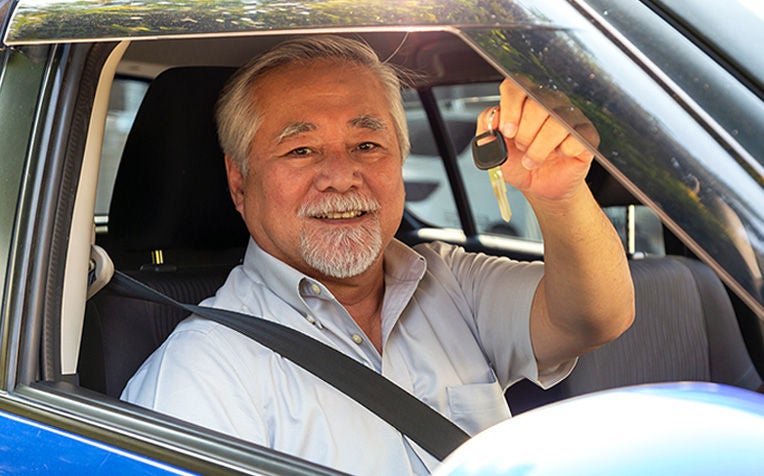
Driving after surviving a stroke can be dangerous. Thus it is important for the stroke survivor to be assessed by a certified driver-assessor therapist to ensure the patient is able to operate a motor vehicle safely.
Article contributed by Advanced Practice Nurse Chew Jing Si from Singapore General Hospital (SGH), a member of the SingHealth group.
Everyone who drives should have good vision, coordination and sharp reflexes to keep themselves and other road users safe. However, these essential driving skills can be affected by stroke.
A
stroke occurs when part of the brain is damaged as it does not get enough blood, due to blockage or rupture of a blood vessel supplying that area of the brain. This often results in weakness, numbness or incoordination of limbs. In addition, someone who has had a stroke may also have problems with their vision, difficulty remembering things or slower reaction times. These side-effects of stroke can affect a stroke survivor’s ability to drive safely.
A Transient Ischaemic Attack (TIA), or “mini-stroke” occurs when blood supply to the brain is stopped for a short time and quickly restored without medical treatment. Stroke symptoms usually last only a few minutes and there is no permanent brain damage, but a TIA can be a warning sign that a stroke may occur.
Can I drive again after a stroke or TIA (Transient Ischaemic Attack)?
Fitness to drive after a stroke or TIA depends on:
- Your level of recovery
- If you had a stroke or TIA
- Likelihood of the stroke happening again
- Your class of driving licence
No two strokes are the same and every person’s recovery journey is different. Therefore, it is important to be assessed by a certified driver-assessor therapist after a suitable period of rehabilitation. The certified driver-assessor therapist is often an Occupational Therapist who will perform both off-road and on-road assessments to determine a person’s ability to operate a motor vehicle safely.
After passing the driving assessment, the stroke survivor will need to be reviewed by a Neurologist who will decide if he / she can drive safely. The doctor will check for conditions such as seizure, significant problems with vision including double vision, mental or coordination impairment that is assessed to be severe enough to interfere with control of the vehicle. This is in line with guidelines set by the Singapore Medical Association.
The risk of having another stroke is highest within the first year of a stroke. Taking medication as prescribed by your doctor and following the stroke team’s advice, such as quitting smoking, losing weight (if needed), being physically active and eating a balanced diet can reduce your risk of having another stroke.
What if I need to drive for work?
Stroke survivors holding class 4 or 5 driving licences (mini-buses, buses, heavy goods vehicles) and vocational licences (e.g. taxi drivers, private hire car drivers, e.g, Grab, bus drivers), must meet tougher criteria before they can start driving again, as outlined in the table below:
| |
Class 1, 2 & 3 licences |
Class 4 & 5 licences and vocational driving licences (mini-buses, buses, heavy goods vehicles, taxis) |
|---|---|---|
| Stroke | ||
| No disabilities after stroke | 1 month after stroke |
|
| Mild disabilities after stroke |
|
|
| TIA (Transient Ischaemic Attack) | ||
| First TIA | Free from TIA for 1 month | Free from TIA for 6 months (not including brainstem TIA) |
| History of more than 1 TIA | 6 months from last TIA | 1 year from last TIA or from a brainstem TIA |
More resources on Stroke and Driving after Stroke can be found in the following websites:
Stroke Services Improvement (SSI) "Social and Leisure Matters after Stroke" Factsheet
Ref: L20
Check out other articles on stroke:
4 Facts About Stroke You Need to Know
Stroke: When It Strikes During Sleep
Beware of Mini Stroke – TIA (Transient Ischaemic Attack)
Suffered a Stroke? 5 Questions to Ask Your Doctor
What to Expect When a Stroke Occurs
Contributed by


















 Get it on Google Play
Get it on Google Play